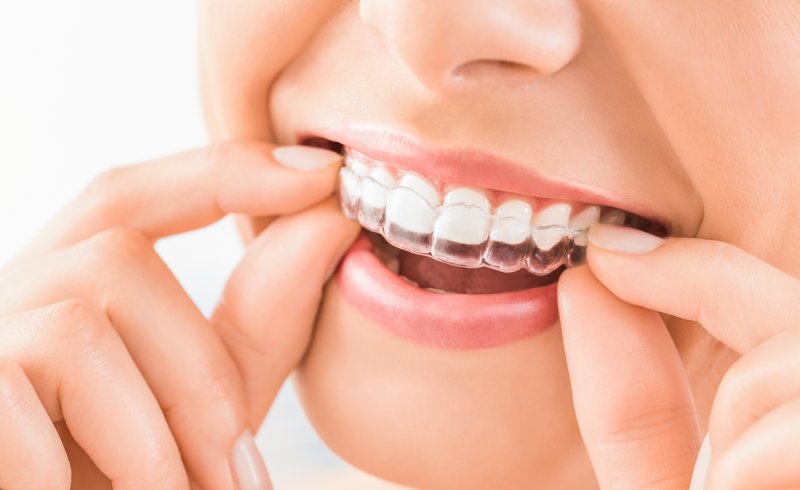
Sometimes it’s nice to be noticed—whether it’s by your supervisor at work or your longtime crush. However, certain things are better left unnoticed. Invisalign is a great option for those looking to straighten their teeth without the flashiness of braces and wires. If you’re considering Invisalign, you might be wondering if your speech will tip people off to your otherwise invisible treatment. But never fear, here’s how you can quickly adjust to pronunciation differences. You’ll sound “normal” again in no time.
Why Do I Sound Different With Invisalign?
Invisalign is often the preferred choice over braces because not only is it far more subtle, but it also avoids the uncomfortableness of sore teeth and sensitive gums.
But much like braces, or any dental device, Invisalign can slightly affect how your tongue moves in your mouth. When you speak, specific movements dictate the sounds that are produced. The extra bulkiness and different “feel” behind your teeth occasionally creates temporary changes to your speech. There is an adjustment period where you might have to get used to speaking with your new Invisalign.
I Have A Lisp Wearing My Invisalign
Some people notice that they have a slight lisp when speaking with their new Invisalign for the first couple of days. This is completely normal.
Remember that Invisalign is made of a thin plastic, so the speech changes it may cause at first are usually very minor and resolve quickly. For instance, you might notice a change in your “s” and “sh” sounds because the placement of your tongue requires that you hit your Invisalign. Practicing speaking should help you return to your “normal” speech quickly.
But the good news is that most patients don’t experience any of these issues after getting Invisalign.
Tips For Speaking With Invisalign
The key here is practice, practice, practice. You don’t just become a master piano player overnight, right? Thankfully, adjusting to your new Invisalign is much easier than mastering a musical instrument.
If you are noticing that certain sounds come out differently, or that some words are more difficult, practice them! Repetition will help your mouth adjust more quickly. Be patient with yourself and know that your altered speech is normal and should subside.
After a brief adjustment period, trust that only you and your dentist will know about your treatment.
About the Author
Dr. Tillman’s goal has always been to give patients a comfortable and fun dental experience. After receiving his dental degree from the University of Texas Branch in Houston, he has completed over 2,500 hours of post graduate courses through the LD Pankey Institute and the Dawson Academy. Dr. Tillman also completed comprehensive instruction in orthodontics with the American Society of Orthodontics. He is a Fellow of the International Congress of Oral Implantologists, the Pierre Fauchard Academy, and the International College of Dentists. Additionally, he has a Mastership with the Academy of General Dentistry. If you have any questions about Invisalign, visit his website or give him a call at (817)870-4746.
